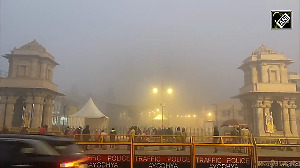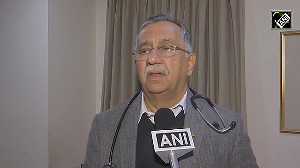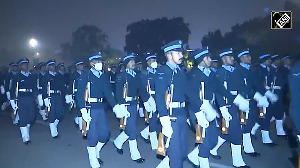Shakespeare scholar Dr Duncan Salkeld said he had unearthed documents which indicate that she is "the foremost candidate for the dubious role of the Dark Lady."
Many of the sonnets 127 to 152 are addressed to an unidentified woman with whom Shakespare imagines having an affair.
In Sonnet 144 the temptress is referred to as "my female evil" and "my bad angel."
The identity of the Dark Lady has mystified academics for years.
To her contemporaries, she was known as "an arrant whore and a bawde," catering for everyone from "ingraunts" (immigrants) to "welthyemen" and the aristocracy.
The sonnets give few details describing her, apart from her dark eyes, hair and complexion, with hints that she was married.
According to the Independent, this identity was tentatively suggested in the 1930s but Dr Salkeld has now found public records that convince him that she is "the foremost candidate for the dubious role of the Dark Lady."
Dr Salkeld discovered part of the evidence in the diary of Philip Henslowe, the theatre owner who built the Rose Theatre and whose acting company was a rival to Shakespeare's.
Within its pages, there is mention of both Black Luce and her associate Gilbert East, who operated another Clerkenwell brothel.
Henslowe, who staged at least one of Shakespeare's plays, Titus Andronicus, recorded 30 occasions when he dined with a Gilbert East who was also Henslowe's bailiff for properties that he owned.
The discovery that Luce and East were also Henslowe's tenants adds a definitive link to Shakespeare's world, according to the scholar.
'The name 'Gilbert East' is rare in London parish records and we are on safe ground in taking the brothel-owner to be East. It proves the connection between East and Henslowe,' the Daily Mail quoted Dr Salkeld as saying.
"To my knowledge, no one has spotted this connection before," he added.
Lucy also appears in a list of bawdy entertainments -- the Gray's Inn Christmas entertainments of 1594 -- and in a few plays and literary texts of the period.
Apart from a midnight raid on her premises, Luce is not recorded as being arrested, though her girls were, and court documents include references to her successful brothel.
"Black Luce's bad name was so well-known that anyone reading Shakespeare's sonnets in the 1590s and early 1600s is likely to have brought her to mind, and Shakespeare must have known this," he said.
Acknowledging that trying to unravel the Dark Lady is controversial, he concludes that there is sufficient "circumstantial' evidence."
"Whoever that person was, Shakespeare painted her with the reputation of Luce This is new evidence," he added.
The link to Clerkenwell is further strengthened by Shakespeare's own connections with the area.
Not only did he know people who lived there, but he may also have had his own relatives there.
In parish records, Dr Salkeld found several Shakespeares, including a Matthew Shakespeare who was married to an Isabel Peele -- sister of the dramatist George Peele, who probably collaborated with the Bard on Titus Andronicus.






 © 2025 Rediff.com -
© 2025 Rediff.com -